Amazon slashes its way to higher profits
The tech giant has had a tough few years. But are things on the up and up?
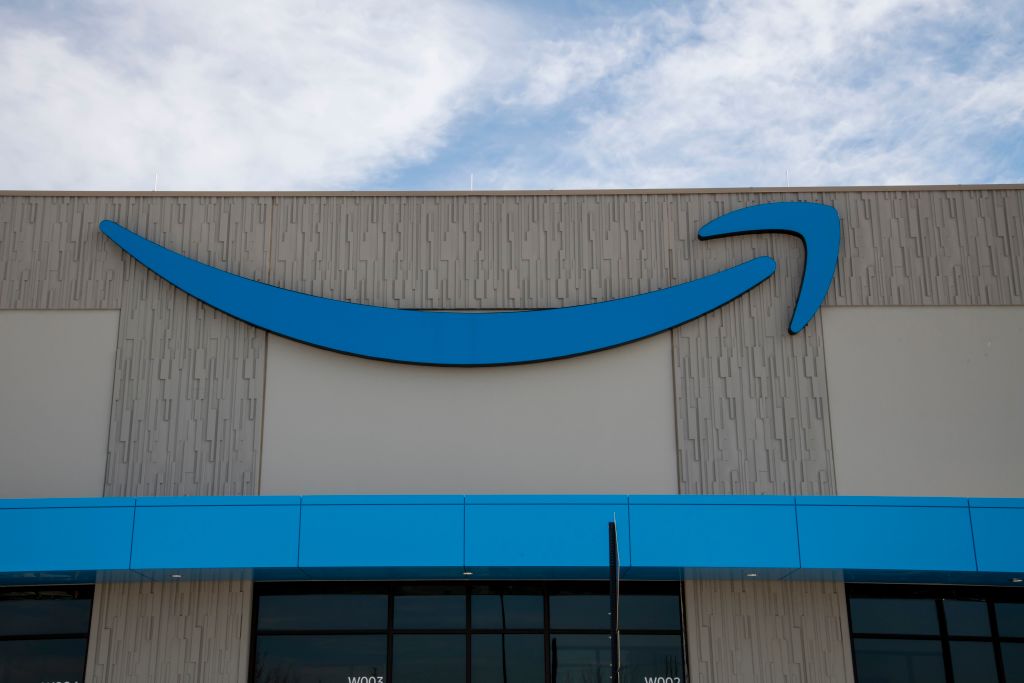
A free daily email with the biggest news stories of the day – and the best features from TheWeek.com
You are now subscribed
Your newsletter sign-up was successful
The smartest insight and analysis, from all perspectives, rounded up from around the web:
Amazon reminded investors last week that it's no Big Tech afterthought, said Spencer Soper in Bloomberg. The retail giant "pulled off a financial double play this earnings season," generating big earnings growth while cutting spending. The results sent shares soaring to their highest point in a year. After a period of "unprecedented axe-wielding," CEO Andy Jassy "seems ready to reinvest — just as recession fears recede and consumers say they feel better about the economy." Amazon said it planned to double the number of its same-day delivery facilities and is rebooting its grocery operations at Whole Foods and Amazon Fresh. Jassy also said "every single one" of Amazon's businesses is working on incorporating AI, and we'll see it everywhere from Amazon Search to Alexa home devices.
Jassy has had a tough two years at the helm, said Annie Palmer in CNBC.com. Wall Street let Amazon's founder Jeff Bezos get away with claiming "the customer was always more important" than quarterly earnings targets. Jassy, by contrast, was "forced by investors to get serious about profitability" as the stock took a massive hit in 2022. In response, he "pared back underperforming projects," froze hiring, "and eliminated 27,000 jobs." The changes made Amazon "less dependent on its cloud business, Amazon Web Services, for profits," and that's already paying off. "There's still a risk Amazon could get caught up in the spending war over generative AI," said Dan Gallagher in The Wall Street Journal. But that's at least "one market that investors are still happy" to indulge.
The Week
Escape your echo chamber. Get the facts behind the news, plus analysis from multiple perspectives.

Sign up for The Week's Free Newsletters
From our morning news briefing to a weekly Good News Newsletter, get the best of The Week delivered directly to your inbox.
From our morning news briefing to a weekly Good News Newsletter, get the best of The Week delivered directly to your inbox.
Amazon's grocery business is still a weak point, said Leticia Miranda in Bloomberg. When Amazon acquired Whole Foods in 2017, "industry watchers believed the tech behemoth would completely change how we shop for groceries. That hasn't quite happened." And changes announced last week "are quite incremental." The U.S. has 170 million Prime members, so opening up grocery deliveries to non-Prime households won't mean a huge change. Grocery businesses also do best when they have both stores and a digital offering, so customers can pick up curbside. Amazon is undeniable at delivery, but Whole Foods has only "about 500 stores, versus Kroger's 2,800 and Walmart's 4,600."
The key problem for Amazon is that the pandemic boom in e-commerce "has given way to stagnation," said The Economist. The world's largest online retailer reported 11% year-on-year growth in e-commerce sales, which was better than expected. Yet that was still "slower than the giant's pre-pandemic trend." After spiking in early 2020, the online share of retail spending in America has been stuck at around 15%. Meanwhile, competition is picking up. Shein, the Chinese fast-fashion seller beloved by Gen Z, is expanding into electronics and furniture. TikTok has begun letting influencers post links directly "to purchase products without leaving the app." And maybe worst of all, big brands are discovering the advantages of selling direct; for Nike, that now makes up 42% of revenue. Without new strategies, Amazon's gift to investors might have an expiration date.
This article was first published in the latest issue of The Week magazine. If you want to read more like it, you can try six risk-free issues of the magazine here.
A free daily email with the biggest news stories of the day – and the best features from TheWeek.com
-
 How the FCC’s ‘equal time’ rule works
How the FCC’s ‘equal time’ rule worksIn the Spotlight The law is at the heart of the Colbert-CBS conflict
-
 What is the endgame in the DHS shutdown?
What is the endgame in the DHS shutdown?Today’s Big Question Democrats want to rein in ICE’s immigration crackdown
-
 ‘Poor time management isn’t just an inconvenience’
‘Poor time management isn’t just an inconvenience’Instant Opinion Opinion, comment and editorials of the day
-
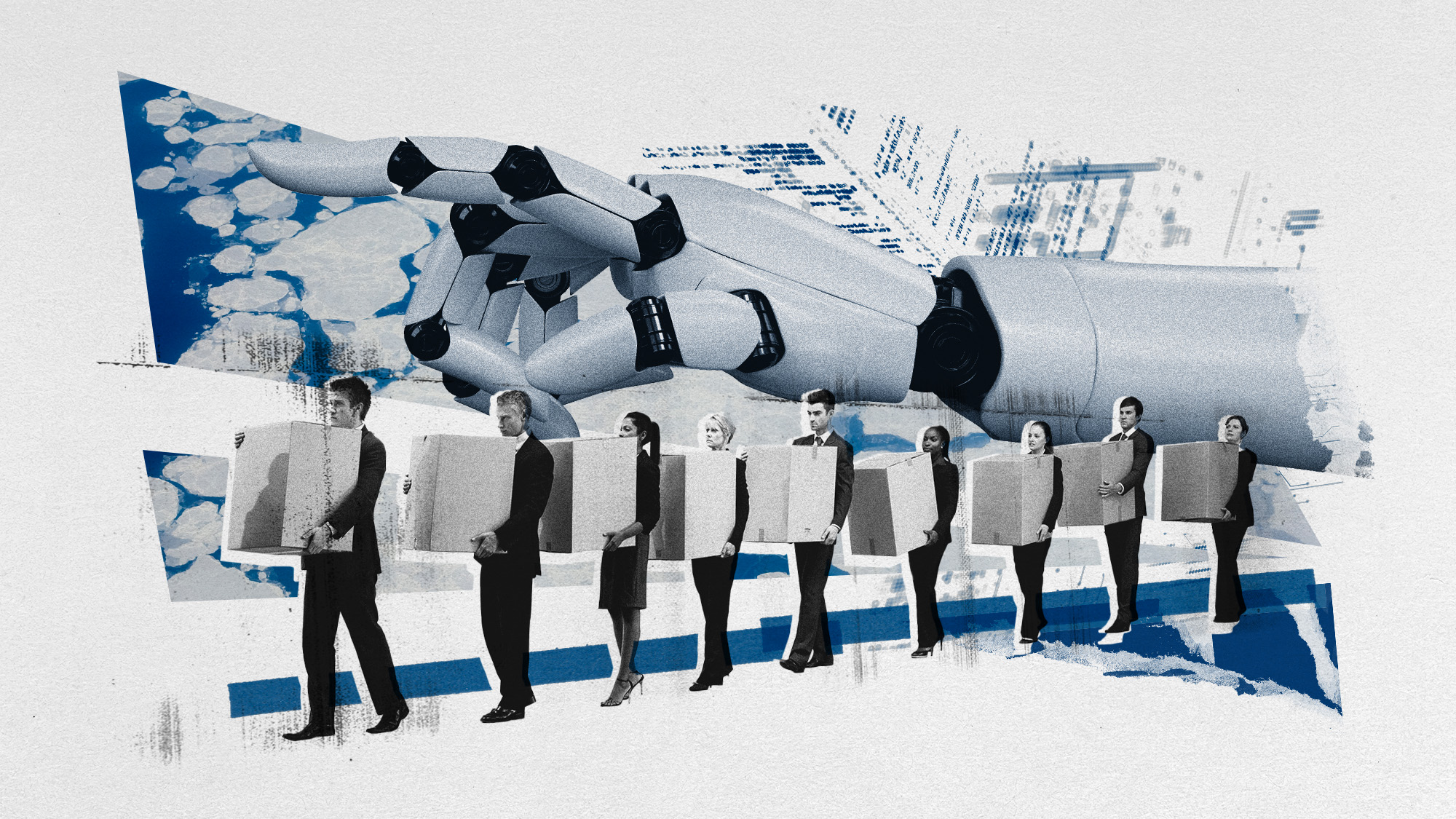 Is the job market frozen or faltering?
Is the job market frozen or faltering?Today's Big Question Layoffs raise alarms while young workers eye law school
-
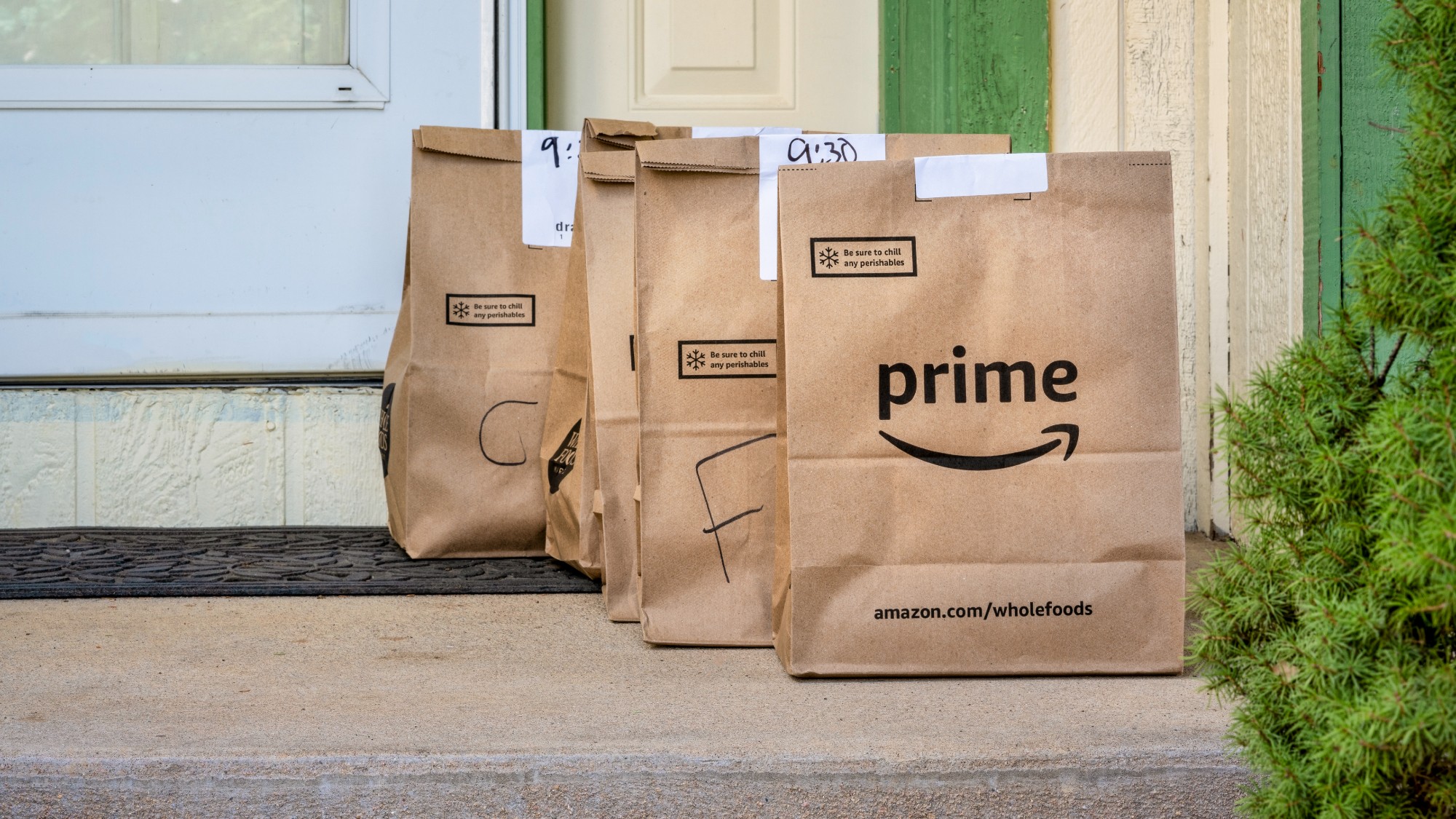 Is Amazon about to take over the grocery business?
Is Amazon about to take over the grocery business?Today's Big Question Expanded delivery will present a challenge to Walmart and Kroger
-
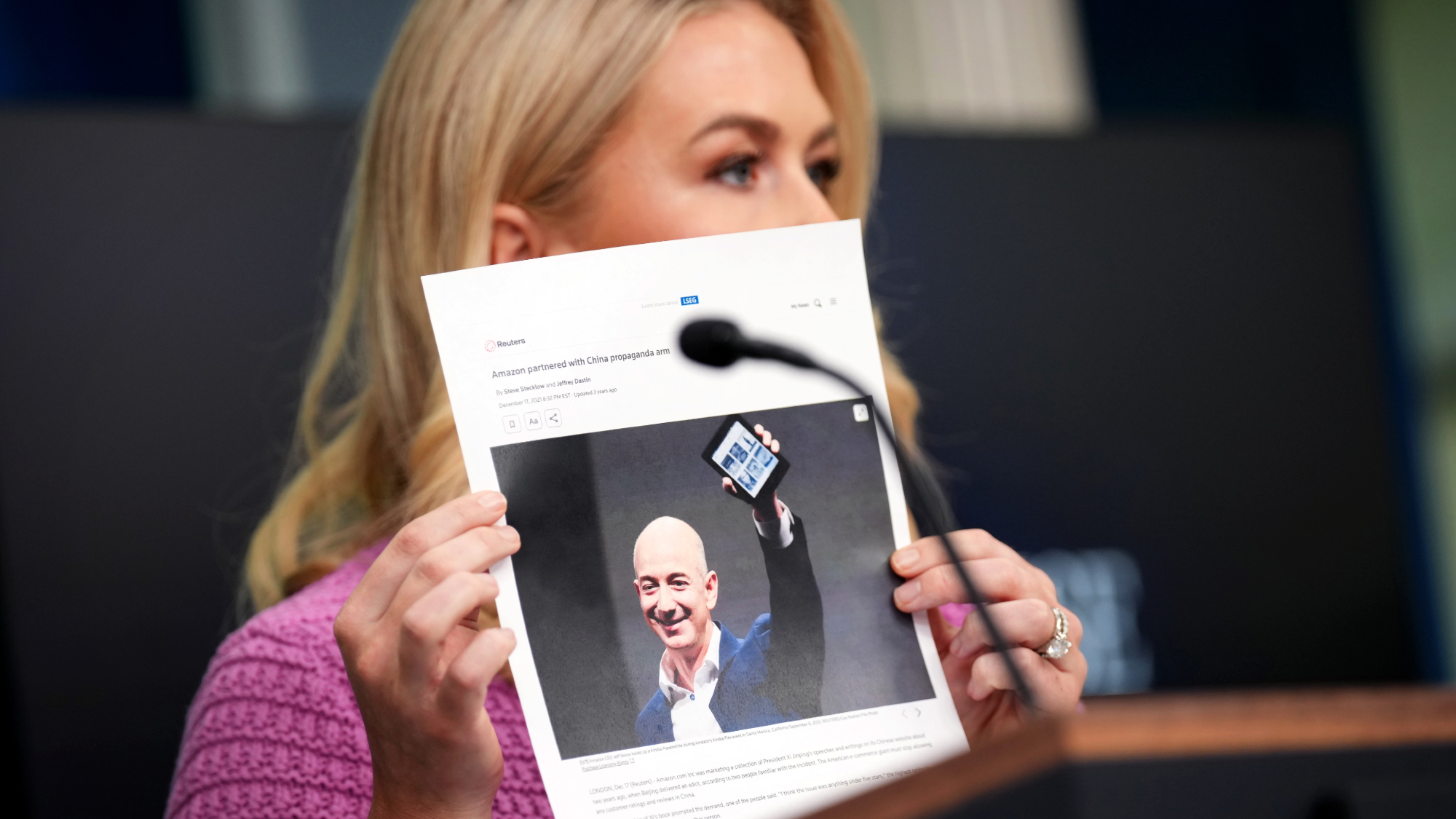 Trump calls Amazon's Bezos over tariff display
Trump calls Amazon's Bezos over tariff displaySpeed Read The president was not happy with reports that Amazon would list the added cost from tariffs alongside product prices
-
 What's Jeff Bezos' net worth?
What's Jeff Bezos' net worth?In Depth The Amazon tycoon and third richest person in the world made his fortune pioneering online retail
-
 Amazon's 'James Bond' deal could mean a new future for 007
Amazon's 'James Bond' deal could mean a new future for 007In the Spotlight The franchise was previously owned by the Broccoli family
-
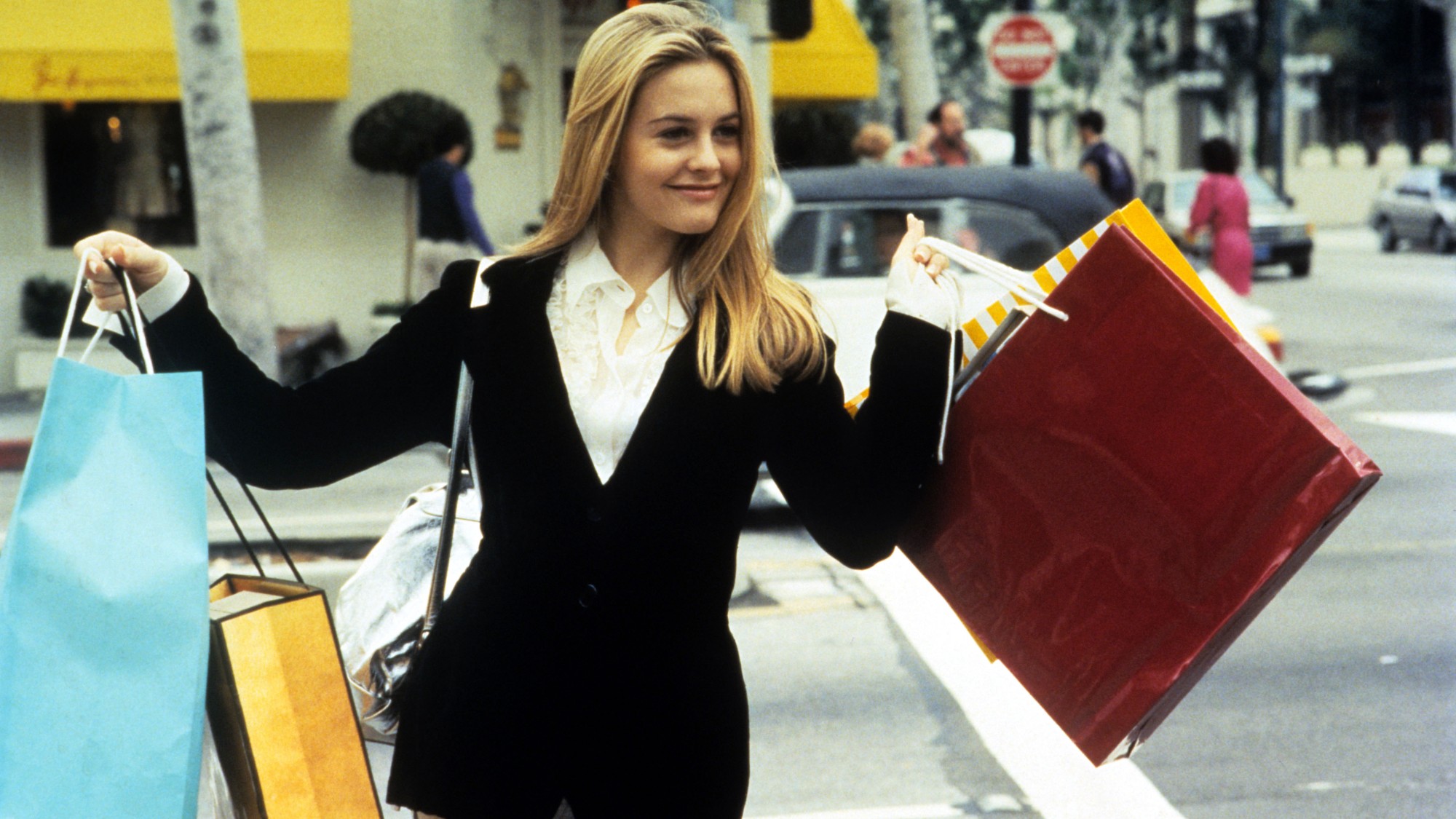 Britain's new retail returns nightmare
Britain's new retail returns nightmareIn the Spotlight Gen Z influencers and a 'poopy diaper' have shown up fault-lines in the system
-
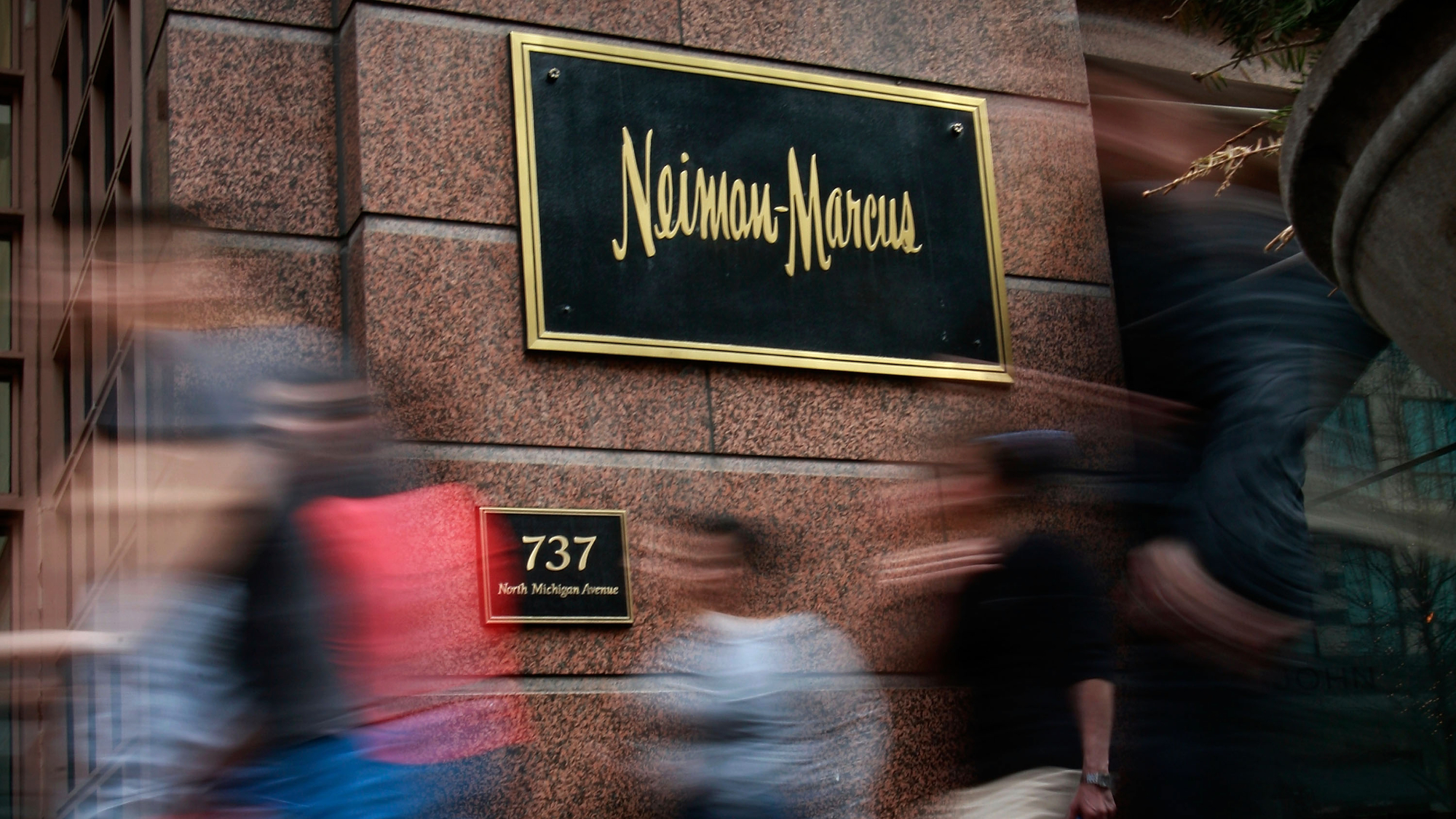 Saks buys Neiman Marcus in $2.65B deal
Saks buys Neiman Marcus in $2.65B dealSpeed Read Following the merger of the two legacy retailers, the new entity will be called Saks Global
-
 Retail media is seeing a surge this year
Retail media is seeing a surge this yearThe Explainer Amazon now makes more money from advertising than Coca-Cola's global revenue